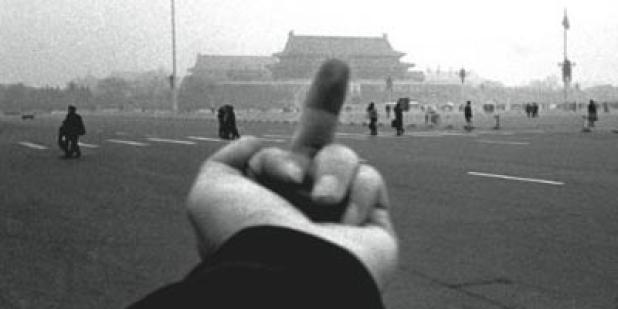Happy Lunar New Year from the USC US-China Institute!
Ai Weiwei: Never Sorry
The Indiana University presents a screening of "Ai Weiwei: Never Sorry", followed by Q&A with film director, Alison Klayman.

Ai Wei Wei: Never Sorry (2012), directed by Alison Klayman; 91 min., in Mandarin with English subtitles)
Ai Wei Wei: Never Sorry is the first feature-length film about the internationally renowned Chinese artist and activist, Ai Weiwei. In recent years, Ai has garnered international attention as much for his ambitious artwork as his political provocations. AI WEIWEI: NEVER SORRY examines this complex intersection of artistic practice and social activism as seen through the life and art of China's preeminent contemporary artist. From 2008 to 2010, Beijing-based journalist and filmmaker Alison Klayman gained unprecedented access to Ai Weiwei. Klayman documented Ai's artistic process in preparation for major museum exhibitions, his intimate exchanges with family members and his increasingly public clashes with the Chinese government. Klayman's detailed portrait of the artist provides a nuanced exploration of contemporary China and one of its most compelling public figures.
In Mandarin with English subtitles, 91 min., Rated R (Cosponsored by IU Cinema, Themester 2012 Good Behavior, Bad Behavior: Molecules to Morality, and International Arthouse Series)
Admission will be $3 for students and $6 for non-students. Tickets may be obtained through the IU Auditorium box office, Mon.-Fri., 10 a.m.-5 p.m. or in the IU Cinema lobby 30 minutes prior to the screening.
Featured Articles
We note the passing of many prominent individuals who played some role in U.S.-China affairs, whether in politics, economics or in helping people in one place understand the other.
Events
Ying Zhu looks at new developments for Chinese and global streaming services.
David Zweig examines China's talent recruitment efforts, particularly towards those scientists and engineers who left China for further study. U.S. universities, labs and companies have long brought in talent from China. Are such people still welcome?






